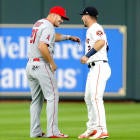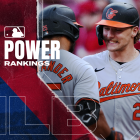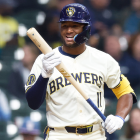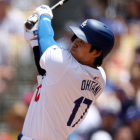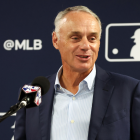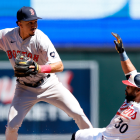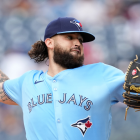On Tuesday, the New York Mets agreed to terms with ace Jacob deGrom on an extension that will keep him in town through at least the 2022 season, and potentially longer if options are exercised by both sides. DeGrom's pact is the latest in a string of extensions that has seen teams commit more than $1 billion to keep their stars in town:
In the last week, Major League Baseball teams have guaranteed more than $1 billion to 10 players via contract extensions. Five of those deals -- Mike Trout, Chris Sale, Jacob deGrom, Paul Goldschmidt and Alex Bregman -- were for nine figures. The total spent: $1,073,000,000.
— Jeff Passan (@JeffPassan) March 26, 2019
On the surface, that seems like a positive development -- who doesn't want to see their team retain its best players? But there is another side to it -- one that shows even star-level performers have become hesitant to test the free-agent waters after witnessing how the last two winters have played out. Hence Chris Sale, Justin Verlander, Paul Goldschmidt, and Nolan Arenado passing on hitting the open market this winter; hence deGrom and Mike Trout foregoing their dates with free agency that were scheduled for winter 2020.
For his part, Trout acknowledged that Bryce Harper and Manny Machado's ventures into free agency influenced his decision to re-sign with the Angels. Granted, the money the Angels were willing to guarantee him likely swayed him the most, but it's not a promising sign when baseball's best player -- now and, perhaps, ever -- feels uncertain about free agency. Teams, then, have essentially weaponized free agency by turning it into a scary thing for players rather than what it was supposed to be: a chance to maximize their earnings through open bidding.
Make no mistake: Teams benefit the most from the fear of free agency. Players are more likely to sign contracts worth less than their market value if they can't elicit offers from other teams -- they're far less likely to ink contracts that establish new market norms and grow the players' share of the pie. Beyond that, a muted free agency will contribute to boring winters, or what Chris Capuano termed as a potentially corrosive issue. Slow offseasons accomplish little other than losing fans and agitating players. If the top stars aren't willing to subject themselves to the process, then what exactly is there worth getting excited about -- what will keep fans engaged?
It's not hard to see this trend contributing to the angst on the player side, either. Yes, some players are getting paid -- but only the elite class. The majority of the union doesn't fall into that bin. They're the ones who have to test free agency -- frequently, as teams become more inclined to short-term arrangements -- and therefore are the ones who are threatened the most by the changes. There's a reason former union head Marvin Miller was glad the other owners didn't go along with then-Athletics owner Charlie Finley's idea to make players free agents every winter: The overwhelming supply would have ensured lower costs. At this point, baseball seems to be edging toward Finley's suggestion -- at least for its middle and lower classes.
Obviously some star-level performers will still hit free agency. Cleveland's ownership is talking about Francisco Lindor like it's a foregone conclusion his days in town are numbered (he won't be a free agent until after 2021) and AL MVP Mookie Betts seems determined to try his luck. But as baseball's free-agent classes continue to lose starpower, it's worth remembering that this probably isn't a good thing for the game's health, and that it increases the odds of a significant work stoppage in the coming years.













